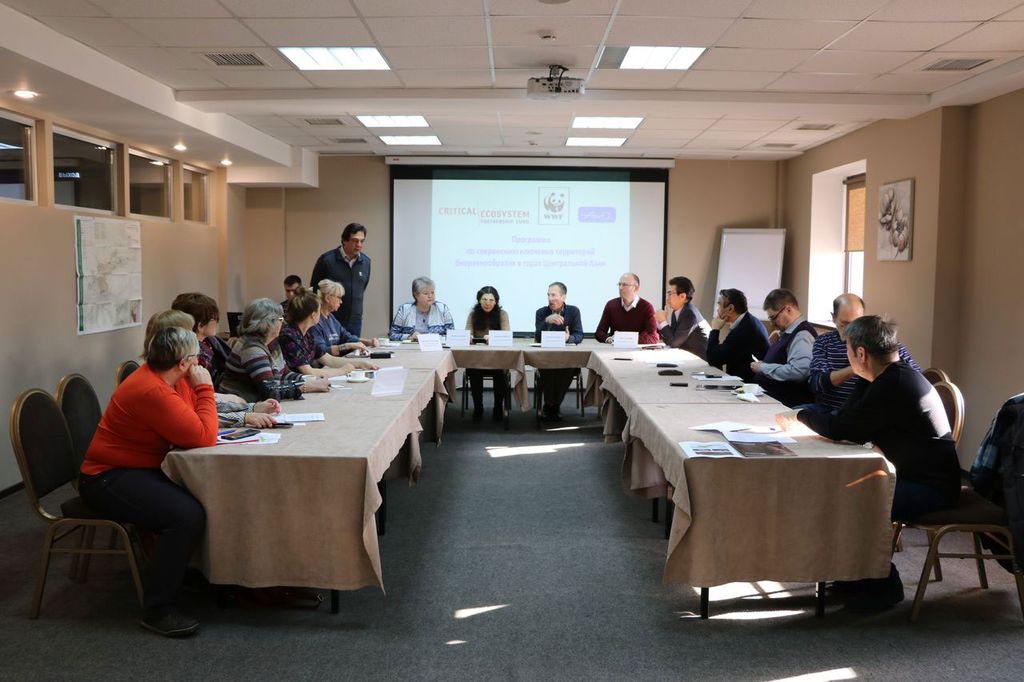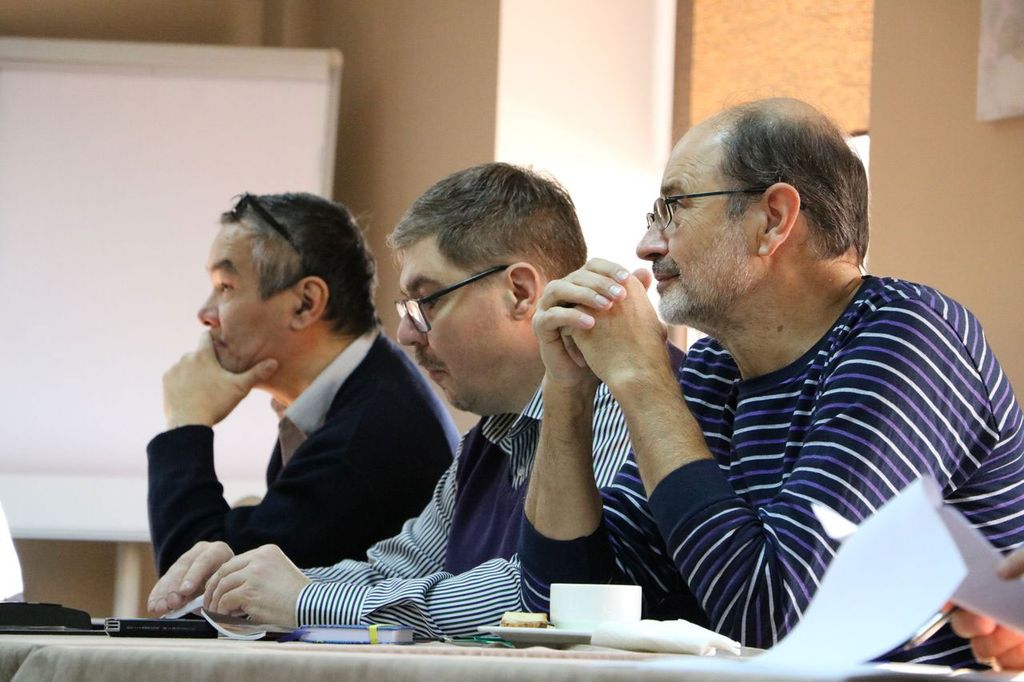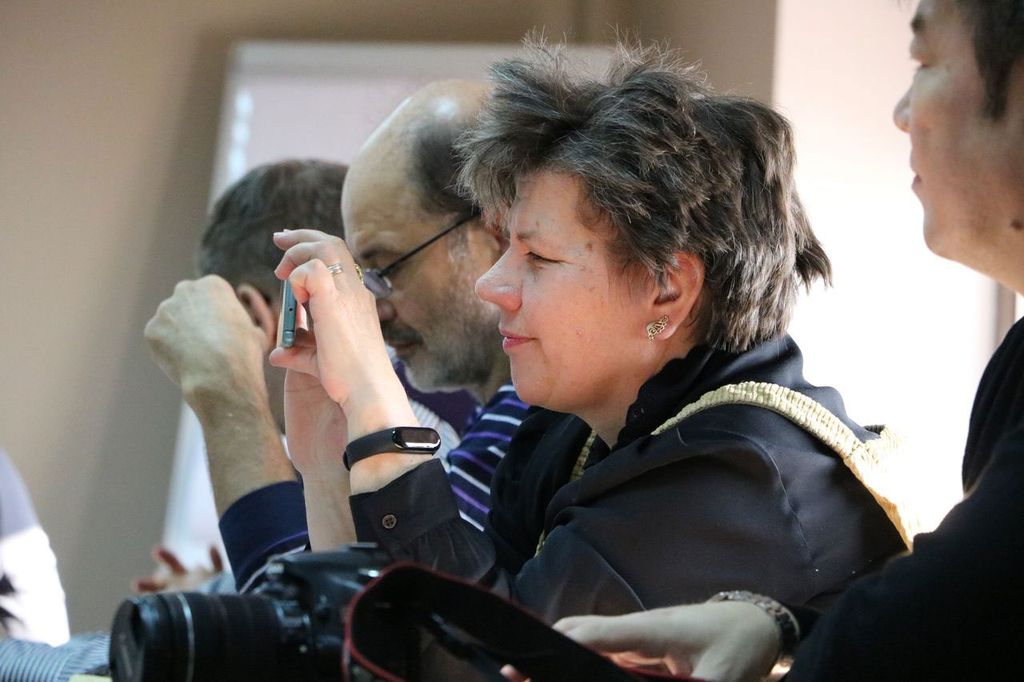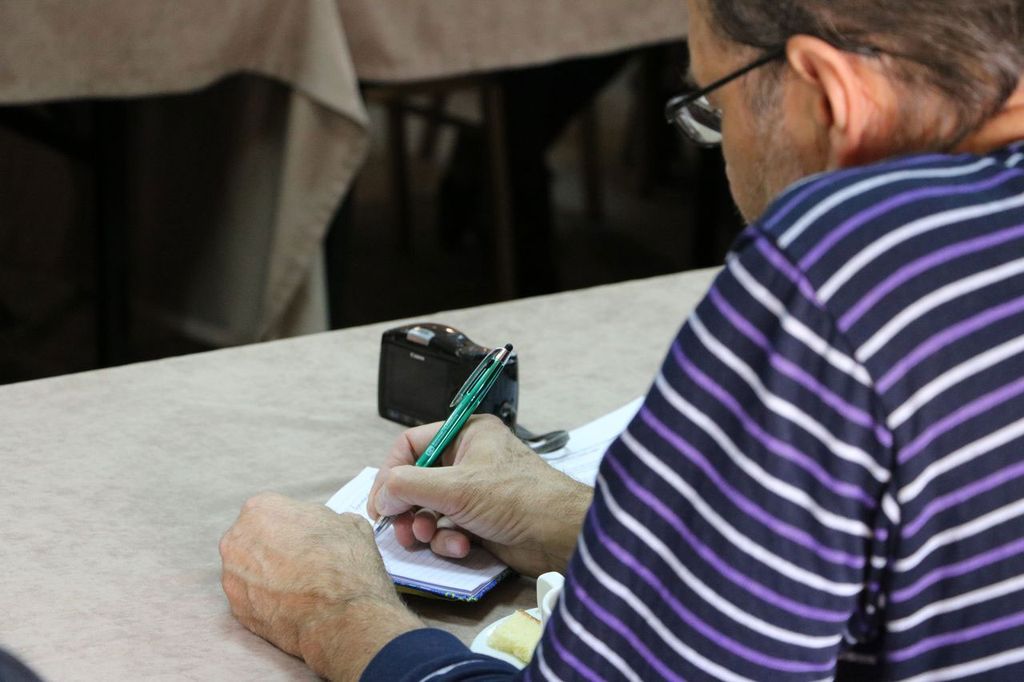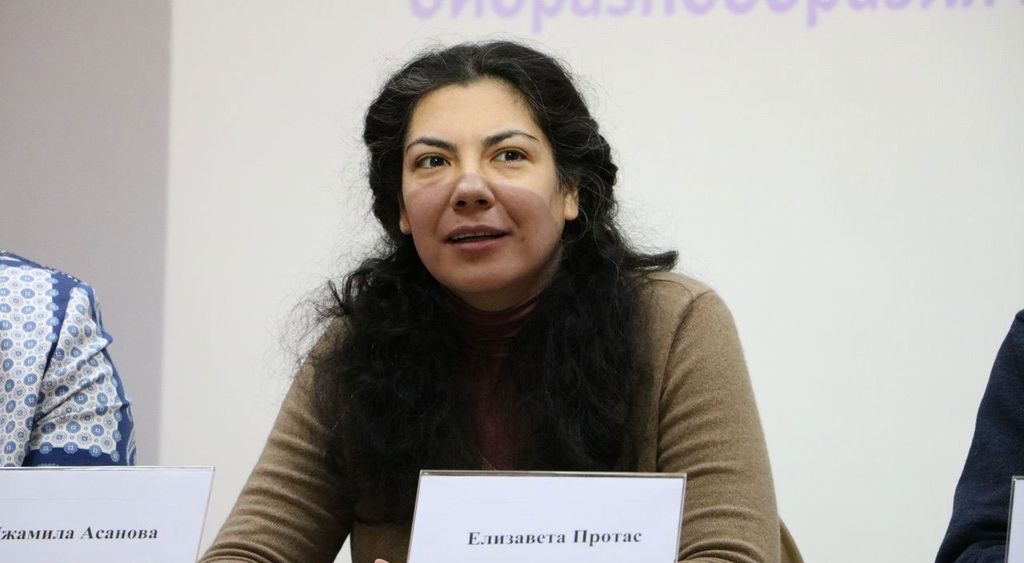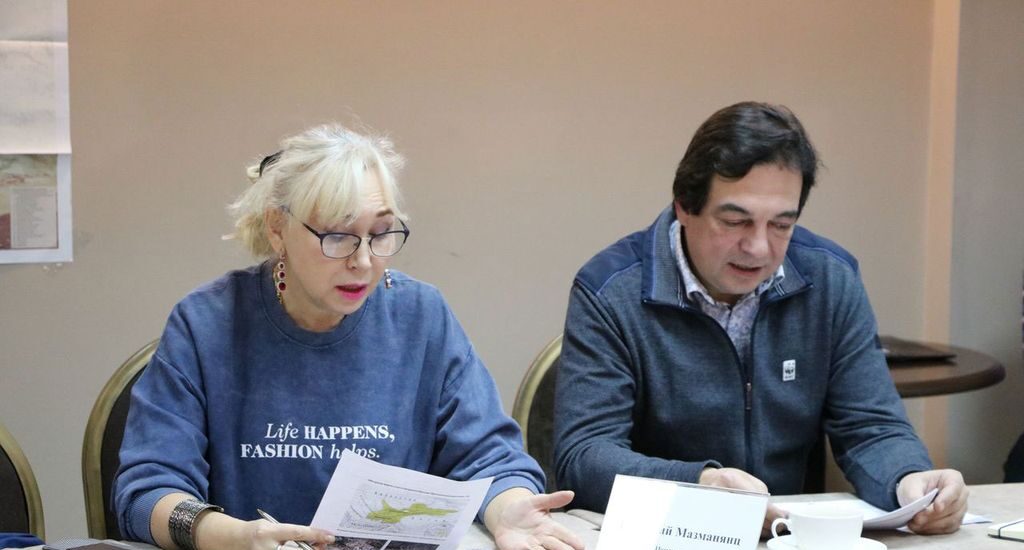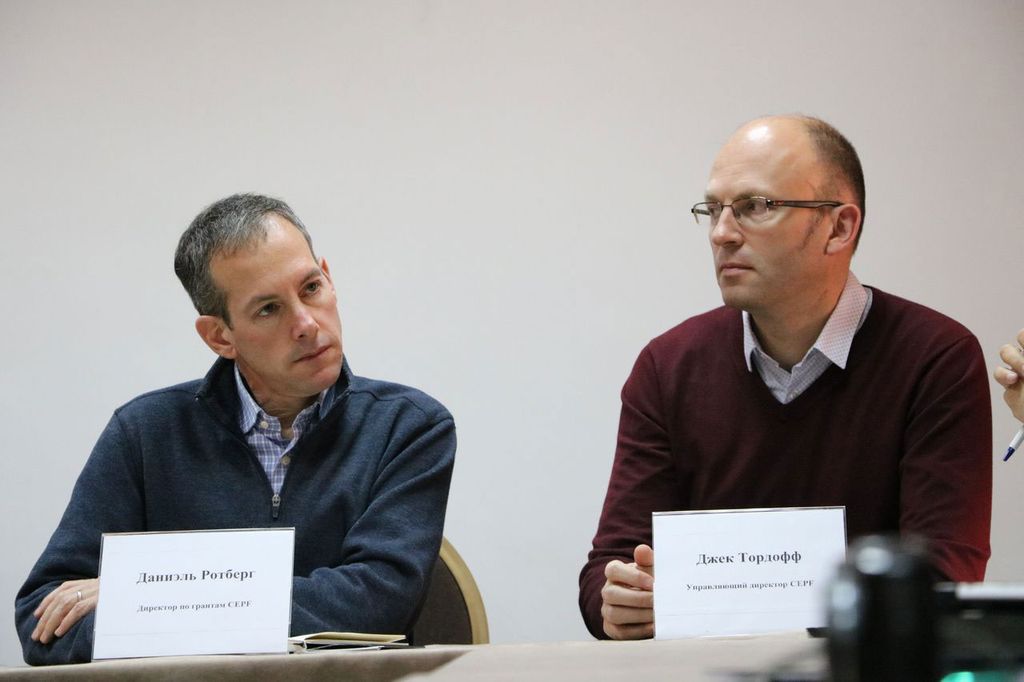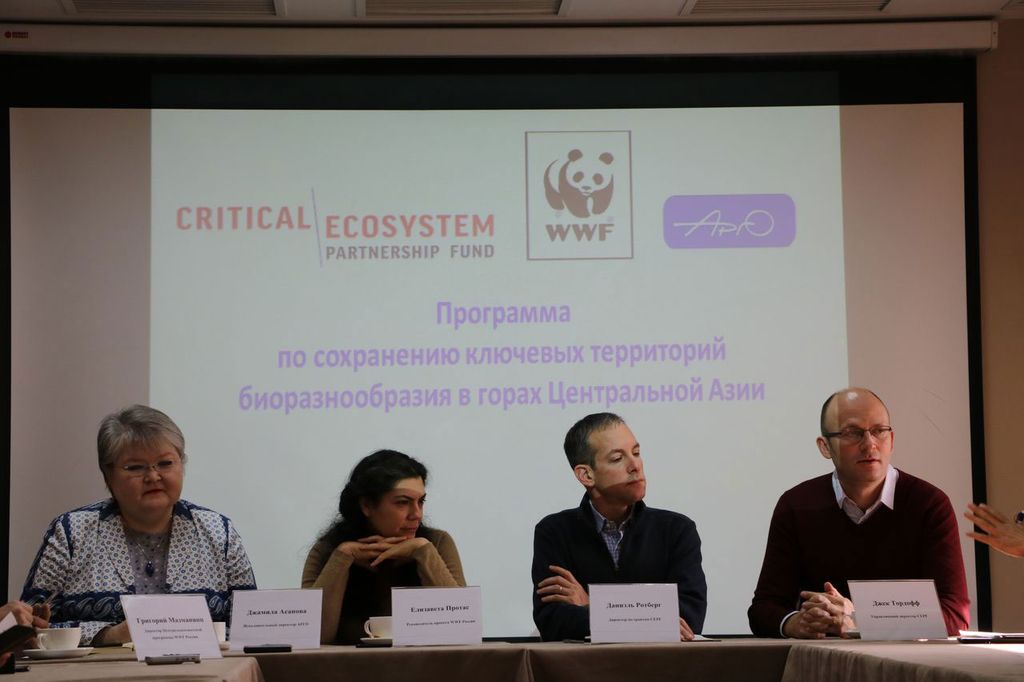In the Central Asian mountain region a 5-year program on conservation of key biodiversity areas has been launched. It will help conserve more than 30 rare plant and animal species, among them: a snow leopard, Bukhara deer, red sheep, Amu Darya shovelnose and others.
Due to the program initiation, a breakfast with mass media participation was held in Almaty on 11thof December 2019. Journalists could ask all the questions they were interested in. Their questions were answered by:
- Grigory Mazmaniants, director of the Central Asian Program for WWF.
- Jamila Asanova, executive director of the Civil Society Development Association (ARGO).
- Daniel Rothberg, grant director of the Critical Ecosystem Partnership Fund (CEPF).
- Jack Tordoff, managing director of the Critical Ecosystem Partnership Fund (CEPF).
- Olga Pereladova, research adviser of the Central Asian Program for WWF Central Asia.
- Elizaveta Protas, project leader of WWF Central Asia.
Under this program, tens of nature reserves, national parks and unique landscapes will be protected, too. Today there are more than 1,500 key biodiversity areas across the world, 145 of them being located in the Central Asian mountain region.
The total program budget is US$8 million. It is funded by the Critical Ecosystem Partnership Fund, which is a joint initiative of the French Development Agency, Conservation International, the European Union, the Global Environment Facility, the Government of Japan and the World Bank. One of the main goals of the Fund is to ensure civil society involvement in biodiversity conservation.
WWF will act as coordinator of the Program in Central Asia. The Civil Society Development Association (ARGO) as a partner of WWF will participate in administering the small grant program and will contribute to strengthening the capacity of CSOs participating in the program. ARGO executive director Jamila Asanova informed that the regional team gathered in Almaty to discuss the Program implementation.
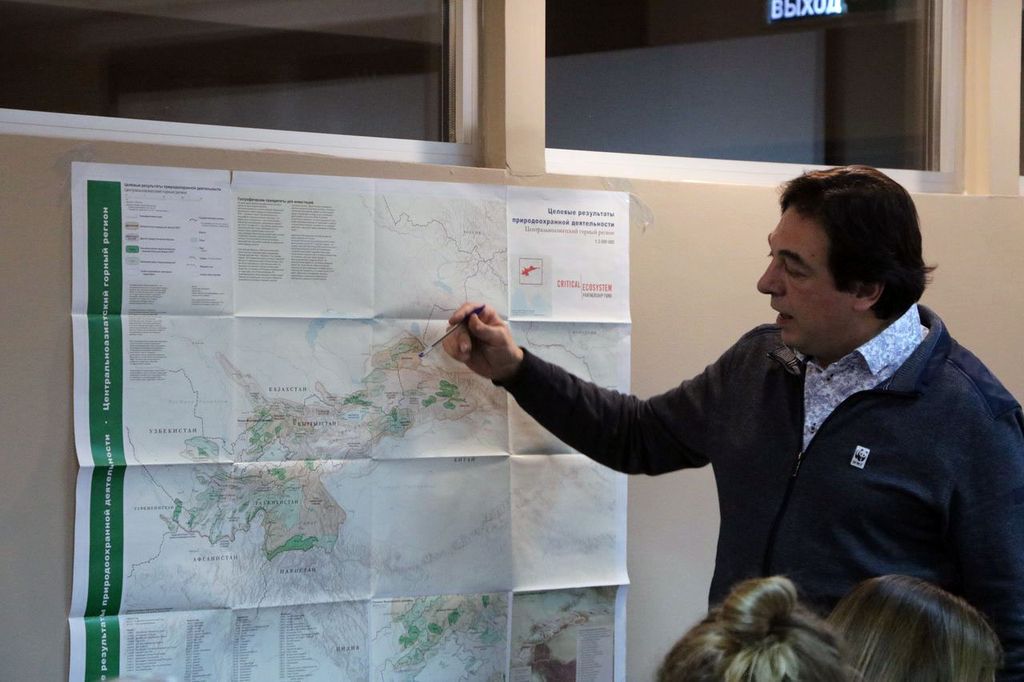 “The Program will have a web portal where we will publish all helpful and available information. The CSO Web Academy online courses will be available to train civil society organizations. We have a positive mindset. We hope that we will help environmental organizations and will add value to biodiversity conservation,” said Jamila Kassimovna.
“The Program will have a web portal where we will publish all helpful and available information. The CSO Web Academy online courses will be available to train civil society organizations. We have a positive mindset. We hope that we will help environmental organizations and will add value to biodiversity conservation,” said Jamila Kassimovna.
The Program supposes delivering grants for civil society organizations working in Kazakhstan, Tajikistan, Uzbekistan, Turkmenistan, Kyrgyzstan and Afghanistan. Unfortunately, organizations working in China could not join the Program.
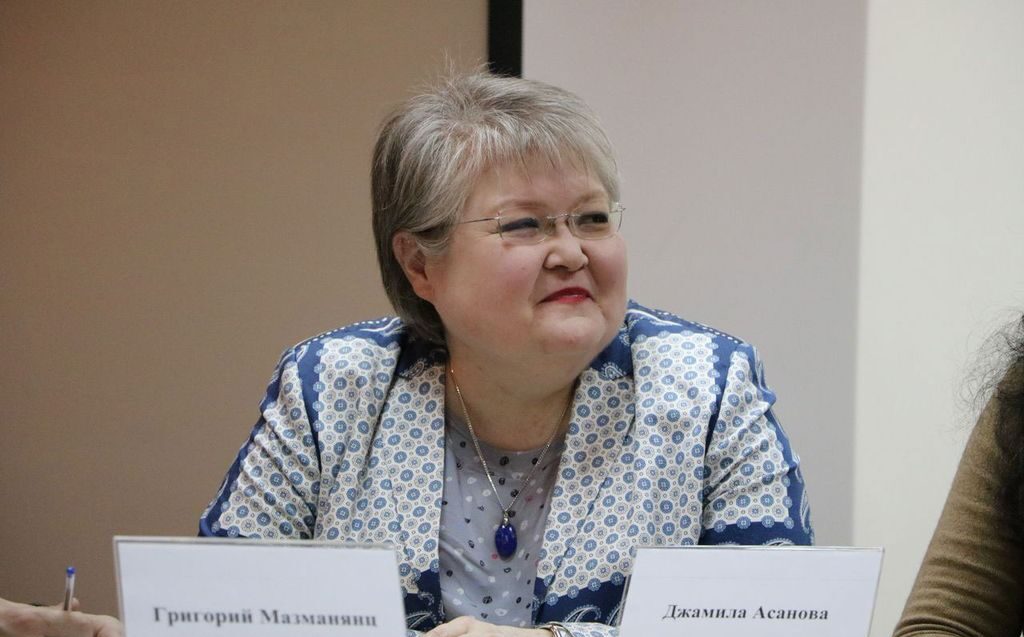 “The work of CEPF is extremely important. Key biodiversity areas are a house for millions of people whose well-being depends upon the environmental conditions,” commented the program start Daniel Rothberg. “Although a considerable part of global funding of the environmental activity is provided to governments, the experience shows that interaction with local civil society in developing countries and countries with economy in transition located in key biodiversity areas produces more sustainable and long-term results in the sphere of biodiversity conservation. Non-governmental groups display a non-standard approach to addressing problems locally. It makes them reliable partners of the state because both are interested in preserving vital resources for the benefit of a local community and at the same time to achieve global goals.”
“The work of CEPF is extremely important. Key biodiversity areas are a house for millions of people whose well-being depends upon the environmental conditions,” commented the program start Daniel Rothberg. “Although a considerable part of global funding of the environmental activity is provided to governments, the experience shows that interaction with local civil society in developing countries and countries with economy in transition located in key biodiversity areas produces more sustainable and long-term results in the sphere of biodiversity conservation. Non-governmental groups display a non-standard approach to addressing problems locally. It makes them reliable partners of the state because both are interested in preserving vital resources for the benefit of a local community and at the same time to achieve global goals.”
It is planned to provide civil society organizations with grants of two types.
- Small grants — up to US$20,000.
- Large grants — up to US$150,000.
The experience of the Critical Ecosystem Partnership Fund shows that similar grant programs allow ensuring conservation of key biodiversity areas in the Program region and having a significant impact on civil society development in a long-term perspective.
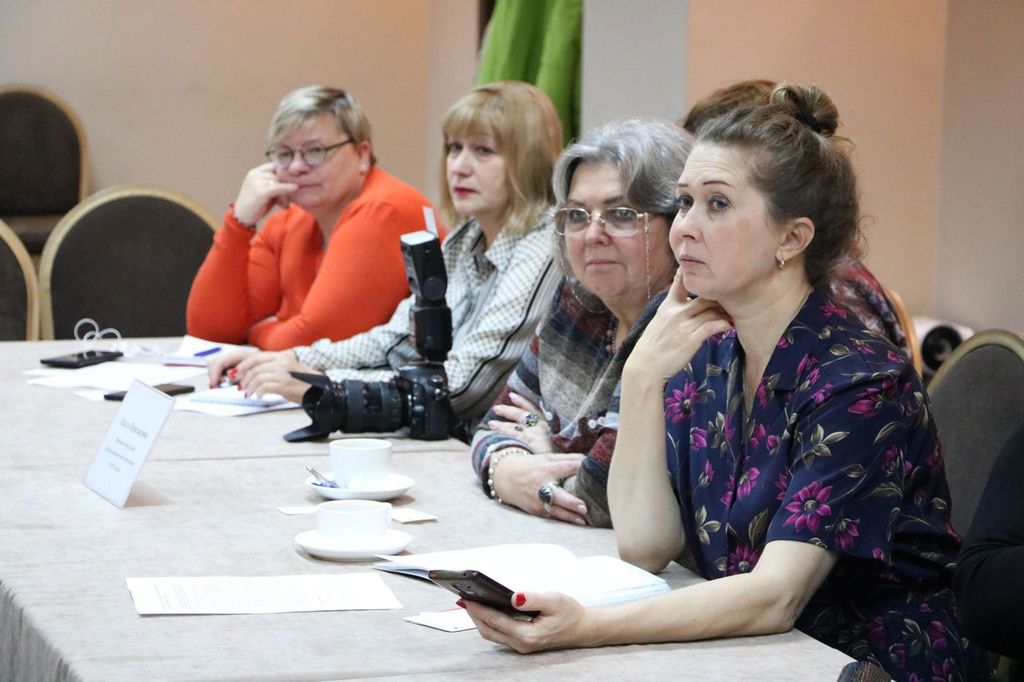
Additional Information.
The World Wildlife Fund (WWF) is one of the largest independent international conservation organizations. It brings together more than 5 million permanent supporters and works in over 100 countries of the world on 6 continents. The WWF International Secretariat is based in Switzerland.
The CEPF Secretariat is located in Conservation International in Washington, USA. Since starting its activity, CEPF has allocated US$243 million to 2,363 grantees from 92 countries and territories. As a result, it was able to improve management of 46.5 million hectares of key biodiversity areas.
